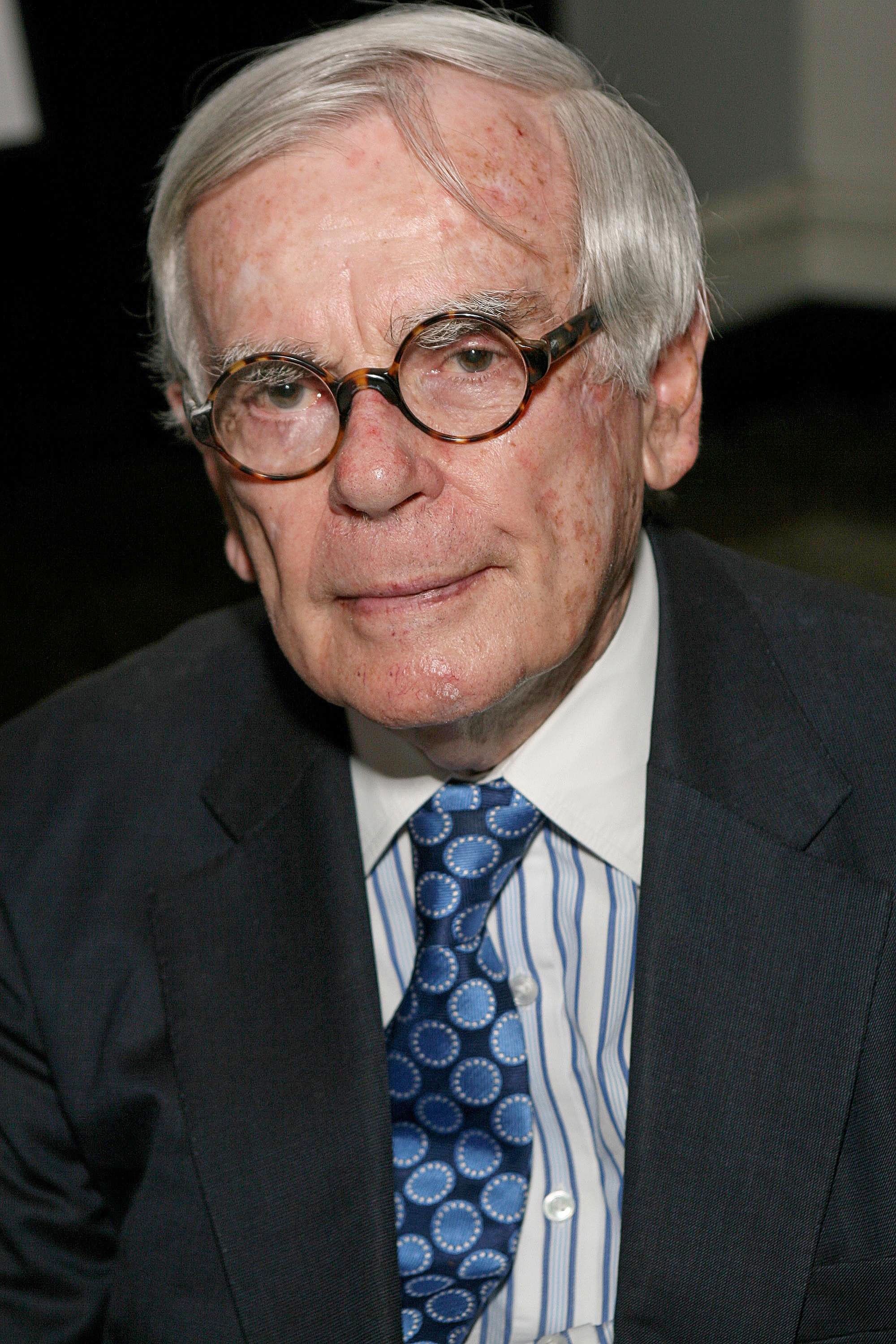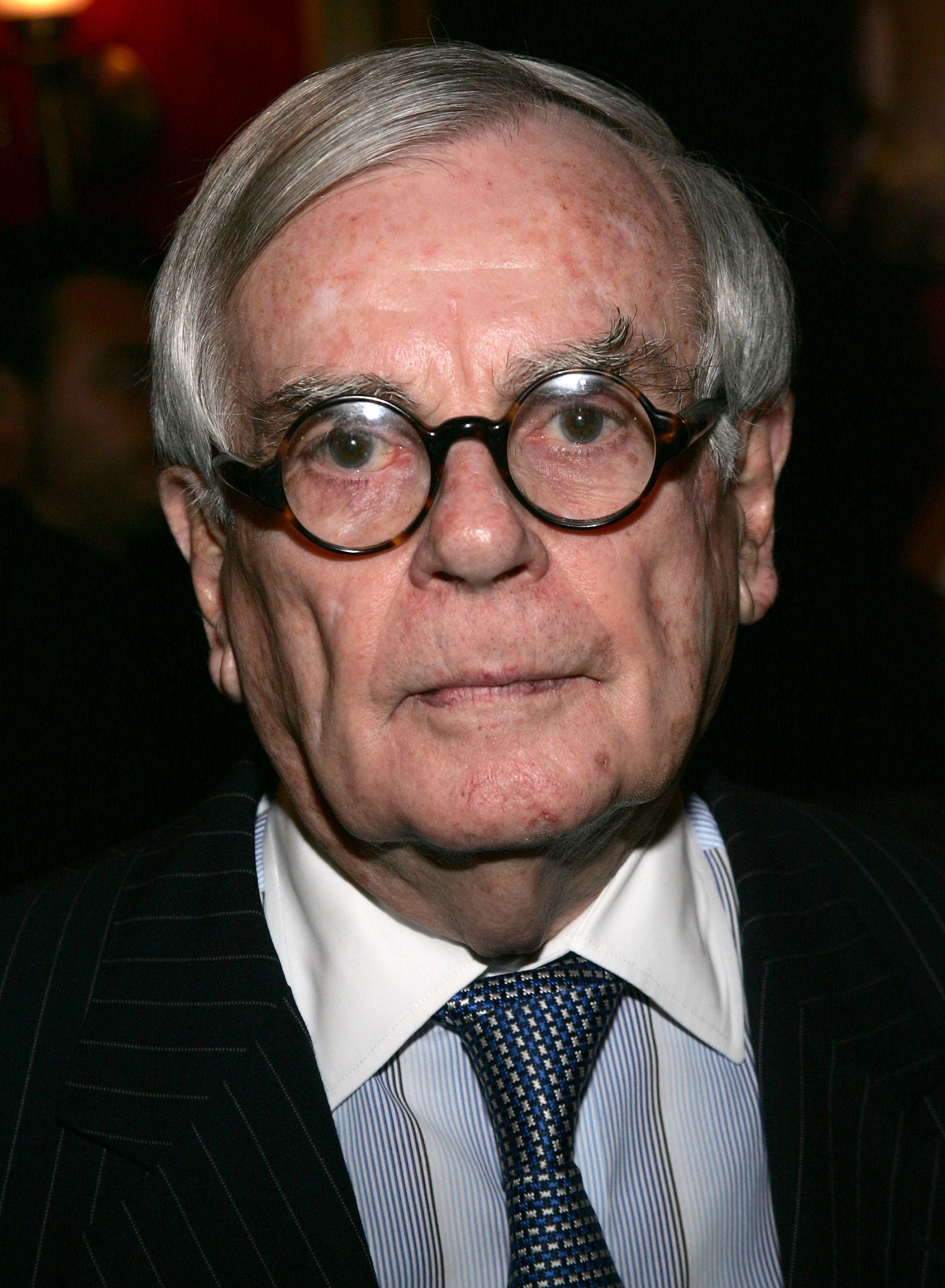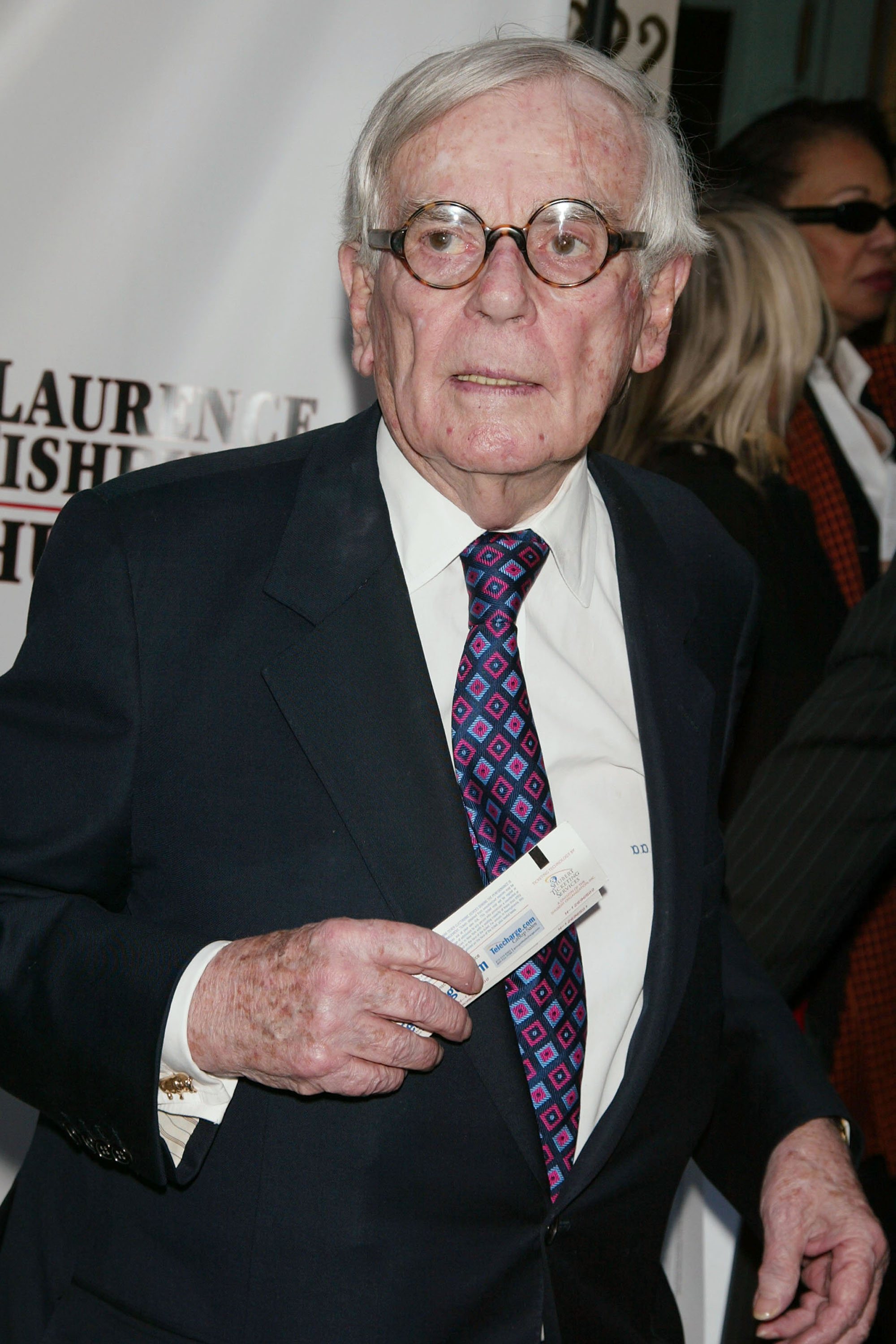Dominick Dunne - Life Of A Storyteller And Observer
When you think about figures who captured the spirit of their times through stories, Dominick Dunne is, very much, a name that comes to mind. He was, in a way, someone who got his start putting together movies and television shows, but then, quite remarkably, found a whole new professional path. This shift wasn't just a simple change of jobs; it was, as a matter of fact, a profound redirection of his energies, moving him from the bright lights of Hollywood to the often shadowed corners of real-life dramas and legal battles.
His later work, you know, as a journalist, particularly for a well-known publication, brought him into the public eye in a significant way. He became a familiar presence, often writing about some of the biggest and most talked-about legal proceedings in the country. This part of his story, it's almost as if it was shaped by deeply personal experiences, allowing him to approach these often-sensational events with a perspective that many found to be quite unique and, frankly, rather compelling.
Beyond his reports from courtrooms, Dominick Dunne also put his observations into books, crafting tales that many people feel they ought to read. His life, from his beginnings in the film industry to becoming a chronicler of American society and its sometimes hidden facets, really does seem to be one that held a lot of dramatic turns. It’s a story, in some respects, that keeps people talking about him even now.
Table of Contents
- Dominick Dunne - A Look at His Life Story
- What Shaped Dominick Dunne's Path?
- How Did Dominick Dunne Become a Voice for the Times?
- Beyond the Courtroom - What Other Stories Did Dominick Dunne Tell?
- The Unique Approach of Dominick Dunne's Writing
- The Enduring Impact of Dominick Dunne's Work
- Why Does Dominick Dunne Still Matter?
- Remembering Dominick Dunne
Dominick Dunne - A Look at His Life Story
Dominick Dunne, a figure whose life seemed to contain many chapters, came into the world on October 29, 1925, in a place called Hartford, Connecticut, right here in the United States. His early professional years, as a matter of fact, saw him involved with the world of moving pictures and television. He was someone who helped put together projects, taking on roles as a producer and even an assistant director. This initial phase of his working life, you know, was very much about being behind the scenes, helping to bring creative visions to the screen, even earning a reputation for his work on a piece titled 'Addicted to...' and other similar endeavors.
It’s interesting to consider that for a good portion of his life, Dominick Dunne was deeply involved in the entertainment business, helping to shape the stories people watched. He was, in a way, a part of creating narratives, even if they were fictional ones, for a wide audience. This background, you could say, gave him a particular kind of insight into how stories are told, how characters are developed, and how public interest is captured, which would later prove quite useful in his subsequent endeavors. His experiences here, quite honestly, gave him a foundation, a certain way of looking at events and people, that would stay with him.
However, as many know, his professional journey took a truly unexpected turn, driven by a deeply sad event in his personal life. This heartbreaking turn of events, a personal loss that no one should ever have to face, effectively redirected his considerable energies and his keen observations into a completely different kind of storytelling. It was, basically, a pivotal moment, leading him to become someone who reported on actual crime events, a line of work that would define his later years and make him a widely recognized voice.
Personal Details and Bio Data of Dominick Dunne
| Full Name | Dominick John Dunne |
| Born | October 29, 1925 |
| Birthplace | Hartford, Connecticut, USA |
| Died | September 7, 2009 |
| Occupations | Producer, Assistant Director, Journalist, Writer |
| Notable Works (Journalism) | Coverage of major trials for Vanity Fair (e.g., Menendez Brothers) |
| Notable Works (Novels) | 'An Inconvenient Woman', 'People Like Us' |
| Family Connection | Father of Griffin Dunne, Father of Dominique Dunne |
What Shaped Dominick Dunne's Path?
So, what really prompted Dominick Dunne to move from the glitter of Hollywood to the often stark realities of the courtroom? His beginnings, as we touched on, were very much rooted in the film and television industry. He spent years as a producer and an assistant director, working on projects that, you know, captured public attention. This period of his life, it was all about the mechanics of storytelling on screen, understanding how to bring a script to life, and managing the many moving parts that go into making a production. He was, in a way, a craftsman of visual narratives, honing his skills in a demanding, fast-paced environment.
Yet, as many stories go, a profound personal event can completely alter one's course. For Dominick Dunne, this shift was, quite literally, brought about by an unspeakable family sorrow. The loss of his daughter, Dominique Dunne, was a deeply traumatic experience, one that, honestly, changed everything for him. It was a moment that, you could say, broke his connection with his previous professional life and, in a sense, forced him to look for a new purpose, a different way to engage with the world and its often harsh truths.
This personal heartbreak, very much, became the catalyst for his new calling. Instead of creating fictional dramas, he found himself drawn to the real-life dramas unfolding in the legal system. It was, in some respects, a way for him to channel his grief, his observations, and his innate storytelling abilities into something that felt more immediate, more connected to justice and public interest. He began to discover a new direction, a different line of work, where his experiences, both personal and professional, could converge in a powerful way, offering a fresh perspective on the events he would soon report on.
How Did Dominick Dunne Become a Voice for the Times?
After his shift from the entertainment business, Dominick Dunne, quite remarkably, found his true calling as a crime journalist. He became, in a way, a central figure in reporting on some of the biggest legal proceedings that captured America’s attention. His work for Vanity Fair, a publication that is, you know, widely recognized for its in-depth and often glamorous profiles, gave him a platform to share his unique insights. He wasn't just reporting facts; he was, basically, weaving narratives, bringing the human element of these often-sensational events to his readers.
His approach was, arguably, different from many other journalists. He would, it seems, immerse himself in the courtroom dramas, observing the people involved, listening to every word, and then translating that experience into vivid prose. This allowed his readers to feel as if they were right there with him, witnessing the tension, the emotions, and the sometimes shocking revelations. He had a knack for describing the atmosphere, the personalities, and the underlying social currents that made these trials so compelling, often focusing on the human drama at play, which was, quite honestly, a big part of his appeal.
The Menendez brothers' story, for instance, is one of those high-profile cases where Dominick Dunne’s reporting became, very much, a significant part of the public conversation. He wasn't just reporting on the legal specifics; he was, in some respects, offering a window into the lives of the people involved, the families, the lawyers, and the accused. His ability to connect the dots, to see the bigger picture beyond the courtroom, and to convey the emotional weight of these events made him, basically, a widely recognized and respected voice in the field of crime reporting. He was, you know, a keen observer of human nature, and this came through in his writing.
Beyond the Courtroom - What Other Stories Did Dominick Dunne Tell?
While many people might first think of Dominick Dunne as a journalist covering high-profile trials, it's important to remember that his storytelling abilities extended well beyond nonfiction. He was, actually, a novelist of considerable talent, crafting tales that often mirrored the themes and social observations found in his journalism. His books, you know, provided a different kind of window into the lives of the wealthy and powerful, often exploring the darker sides of privilege and the consequences of ambition, which was, in a way, a recurring motif in his work.
Two of his widely recognized novels, 'An Inconvenient Woman' and 'People Like Us,' are, basically, considered essential reading for many who want to understand the society he observed. These stories, in some respects, allowed him to explore the nuances of human behavior and the intricate connections between people in a way that pure journalistic reporting might not have permitted. He could, for instance, delve into the motivations and inner thoughts of his characters, building complex worlds that felt, very much, like an extension of the real world he reported on, but with the freedom of fiction.
These fictional works, quite honestly, showed another facet of Dominick Dunne’s creative mind. They demonstrated his capacity to not only report on existing dramas but also to create new ones, drawing on his deep understanding of human nature and the social circles he inhabited. It’s almost as if his experiences in the courtroom, listening to testimony and observing human frailties, provided a rich source of inspiration for the narratives he would then construct in his novels. He was, you know, a storyteller through and through, whether with facts or with made-up events.
The Unique Approach of Dominick Dunne's Writing
Dominick Dunne’s writing had a certain quality, a way of drawing you in, that set it apart. He didn't just present facts; he, basically, invited you into the story, making you feel like a confidant, someone privy to the inner workings of the events he described. His prose was, in some respects, conversational, almost as if he was speaking directly to you, sharing observations and insights that felt personal and deeply considered. This directness, you know, created a strong connection with his readers, making even the most complex legal proceedings feel accessible and, frankly, quite human.
A significant part of his appeal was his ability to blend the factual with the personal. He was, after all, someone who had experienced profound personal loss, and this experience, you could say, gave him a unique lens through which to view the tragedies and injustices he reported on. It’s almost as if his own grief allowed him to empathize more deeply with the victims and their families, bringing a layer of emotional resonance to his articles that was, very much, uncommon. He wasn't just an observer; he was, in a way, a participant in the emotional landscape of the stories he told.
His writing style, moreover, was characterized by a keen eye for detail and a talent for capturing the essence of a person or a moment with just a few well-chosen words. He had, basically, a gift for making characters, whether they were the accused, the victims, or the lawyers, come alive on the page. This ability to create vivid portraits, combined with his narrative flair, meant that his articles were not just informative; they were, honestly, compelling reads, often leaving a lasting impression on those who encountered them. He knew how to tell a story, and that was, you know, his real strength.
The Enduring Impact of Dominick Dunne's Work
The stories Dominick Dunne told, both in his journalism and his novels, continue to resonate with people today. His reports from the courtrooms, for instance, offered a unique perspective on justice and society, making complex legal situations understandable and, frankly, quite engaging for a wide audience. He had a way of cutting through the legal jargon and focusing on the human drama, which is, you know, why his work still feels relevant. He was, in a way, a master at showing the human element in every story, even those that seemed purely factual.
His portrayal in popular culture, such as Nathan Lane playing him in the Netflix drama about the Menendez brothers, is, basically, a testament to his lasting presence in the public consciousness. This kind of representation means that new generations are discovering Dominick Dunne and his particular way of looking at the world. It’s almost as if his life story, so full of twists and turns, is as compelling as the narratives he himself crafted, keeping his memory and his work alive for many to appreciate. He was, very much, a character in his own right.
Beyond the immediate impact of his articles and books, Dominick Dunne left behind a body of work that provides a valuable record of certain social and legal moments in American history. His observations on wealth, power, and the justice system offer, in some respects, a critical lens through which to view society. His ability to combine sharp reporting with a deeply personal voice means that his writings are not just historical documents; they are, honestly, enduring pieces of storytelling that continue to provoke thought and discussion, which is, you know, quite a legacy.
Why Does Dominick Dunne Still Matter?
So, given all that, why does Dominick Dunne continue to hold a place in our collective memory? One reason, you know, is his distinctive voice. In a world where news can often feel impersonal, his writing always felt, basically, deeply human. He brought his own experiences, his own feelings, and his own moral compass to the stories he covered, making them feel less like distant events and more like personal narratives that truly mattered. This personal touch, you could say, is something that still connects with readers, making his work feel fresh even years later.
Furthermore, his work often touched upon themes that remain, very much, relevant today: justice, accountability, the abuses of power, and the sometimes hidden lives of the wealthy. He was, in a way, a chronicler of a certain segment of society, exposing its flaws and its complexities with a keen eye. His insights into these enduring issues mean that his writings continue to offer valuable perspectives, sparking conversations about what is right and wrong, and how society functions, which is, honestly, quite powerful.
Ultimately, Dominick Dunne matters because he was a storyteller who understood the profound impact of real-life events and the human dramas that unfold within them. He took his own profound sadness and transformed it into a powerful drive to seek truth and give voice to those stories that needed telling. His journey, from film producer to a respected journalist and novelist, is, basically, a testament to the idea that life’s most difficult moments can, in some respects, lead to unexpected and meaningful paths. He was, you know, a truly unique individual.
Remembering Dominick Dunne
Thinking about Dominick Dunne, it’s clear he lived a life full of interesting turns and profound experiences. He was, in a way, someone who started out making movies, then, quite unexpectedly, became a widely recognized journalist, reporting on some of the biggest legal events of his time. His writing, you know, had a particular quality, blending sharp observation with a deeply personal touch, which allowed him to connect with people in a very direct way. He brought a human face to often complex and sensational stories, making them accessible and, frankly, quite moving for a wide audience.
His novels, too, offered a different kind of insight into the world he observed, exploring themes of power and privilege with a keen eye for detail. These stories, in some respects, allowed him to delve deeper into the human condition, crafting narratives that resonated with many readers. Whether he was reporting from a courtroom or creating a fictional world, Dominick Dunne always had a unique way of looking at people and events, a perspective that was, very much, informed by his own life experiences and his personal journey.
Even now, his work continues to be discussed and remembered, especially with his presence in popular dramas, which introduces his story to new generations. He was, basically, a figure who understood the power of a good story, whether it was real or imagined, and he dedicated his later life to sharing those stories with the world. His legacy is, you know, one of a storyteller who found his true voice in the face of immense personal change, leaving behind a body of work that continues to captivate and inform many.

Pictures of Dominick Dunne

Pictures of Dominick Dunne

Dominick Dunne Quotes. QuotesGram